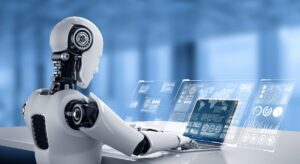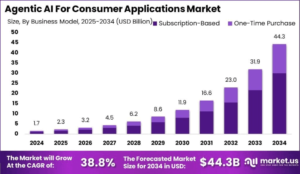While Teachers Concerned About A.I. Impact on Students, Their Own Perspective Differs.

The Growing Role of AI in Education
Artificial Intelligence (AI) is becoming a significant part of the education landscape. As this technology advances, it creates an interesting dilemma for teachers and students alike. While educators aim to create a fair learning environment, AI’s influence raises several important questions regarding ethics and learning dynamics.
The Dual Nature of AI Usage in Education
Educators Embracing AI:
- Many teachers are adopting AI tools to streamline their workload. These tools assist in performing routine tasks, such as grading assignments and managing administrative responsibilities. For instance, AI systems can analyze student essays, providing quick feedback that would take much longer for a teacher to deliver manually. Such efficiencies allow educators to devote more time to interactive teaching and personal engagement with students.
- Student Concerns and Restrictions:
- On the other hand, there is a growing concern among educators about students using AI to cheat or take shortcuts in their work. With tools like AI writing assistants at students’ fingertips, teachers feel the need to impose restrictions on their use during assignments and exams. This leads to a significant question: is it fair to allow teachers to utilize AI for grading if students are barred from using it for writing?
The Tension in AI Adoption
The juxtaposition of these two perspectives creates tension within the educational framework. School leaders are navigating through various marketing claims from tech companies that suggest AI can "transform" learning experiences. However, there is skepticism about whether these AI applications truly enhance the learning process or detract from the essential human relationships that are vital in education.
Concerns Over AI’s Impact on Teacher-Student Relationships
Jennifer Carolan, a former history teacher and now a venture capitalist focused on education, highlights that both teachers and students are increasingly using AI. Despite this, educators voice worries that deploying technology inappropriately might undermine the human connections integral to effective teaching. The concern is that reliance on automated tutoring bots and similar applications can disrupt the interactions between teachers and their students, which are crucial for cultivating understanding and support.
Exploring the Ethical Implications of AI in Grading
One of the challenges in the current landscape is addressing the ethical implications of using AI in grading while discouraging its use by students. This paradox raises essential questions about fairness and consistency in the educational setting. As schools adopt AI, they must find a balance that encourages ethical use while enhancing the learning experience.
Ongoing Trends in AI in Education
As AI continues to evolve, various trends are emerging in the educational sphere:
Personalized Learning: AI tools can analyze student data to create tailored learning experiences based on individual needs, enhancing engagement and understanding.
Tutoring Support: AI-driven platforms can offer additional help to struggling students, making personalized tutoring more accessible than ever.
- Resource Efficiency: Teachers are finding new tools that allow them to save time on grading, enabling them to focus more on direct teaching and less on bureaucratic tasks.
Final Thoughts on the AI Landscape in Education
As schools balance the benefits and challenges of AI, it’s clear that the path forward requires careful consideration of technology’s role in education. By embracing AI responsibly, educators can potentially unlock new opportunities for enhanced learning experiences while maintaining the integrity and relational aspects of teaching.






